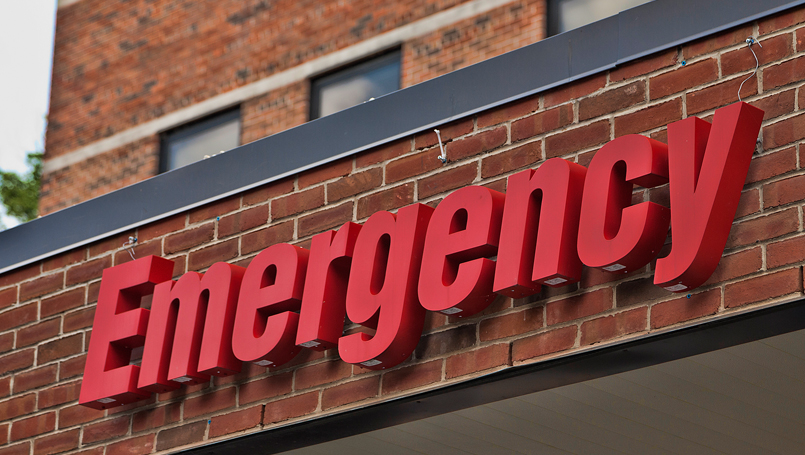
Sometimes it’s obvious that a situation is an emergency. But sometimes it’s not. And in the heat of the moment, when the health of someone you know and love rests on your decision, how do you know what to do?
Beaumont physicians understand the dilemma. Conversations with patients reveal many are hesitant to visit the emergency room because they don’t want to admit something is wrong. They try to downplay potentially serious symptoms because they don’t want to risk being called a hypochondriac or “wasting time” finding out something wasn’t serious.
That can be a dangerous mindset, says David Weaver, D.O., medical director of the Beaumont Emergency Center in Canton. “Of course we respect and appreciate that families don’t want to unnecessarily waste time or resources. But, it is better to get to the emergency room and have the reassurance that the issue was not serious than to ignore symptoms and discover the opposite.”
General guidelines - When to visit an emergency room
Call 911 or go to an emergency room immediately when someone experiences any of the following:
- wheezing, shortness of breath or difficulty breathing
- chest pain
- displaced or open wound fractures
- fainting or dizziness
- sudden numbness or weakness
- bleeding that cannot be stopped
- abdominal pain - especially intense localized pain
- fever with convulsions or any fever in children under 3 months
- confusion or changes in mental status
- coughing or vomiting blood
- severe headache or head injury, especially if the individual is on aspirin or blood thinners
- blood in the urine, or bloody diarrhea
- sudden inability to speak, see, walk or move
The symptoms above are not a complete, specific listing, but rather guidelines. In addition, people should also consider the number of symptoms. Several symptoms that seem minor may be significant when they occur at the same time. If a situation arises, and you aren’t certain whether or not a visit to an emergency room is necessary, head to the emergency room for an evaluation.
When to visit an after-hours clinic or urgent care facility
If the individual’s symptoms do not meet these guidelines and you believe they do not require a trip to the emergency room, a call to his or her primary care physician’s office is a good first step. The primary care physician will be able to advise on the individual situation.
If you need to be seen during the evening or on a weekend, consider going to an after-hours clinic or urgent care facility. These may be appropriate options for:
- cough, cold or sore throat
- rashes or skin irritations
- fever or flu-like symptoms
- mild injuries
- earaches
Plan ahead to make the right choice
Think ahead and familiarize yourself with these guidelines to prepare for a potential emergency situation. Think about which emergency room you would prefer for your family and plan the fastest route to get there safely.
At Beaumont we are committed to partnering with you to assure your family receives the highest quality care, whether it turns out the situation was truly an emergency or not.
